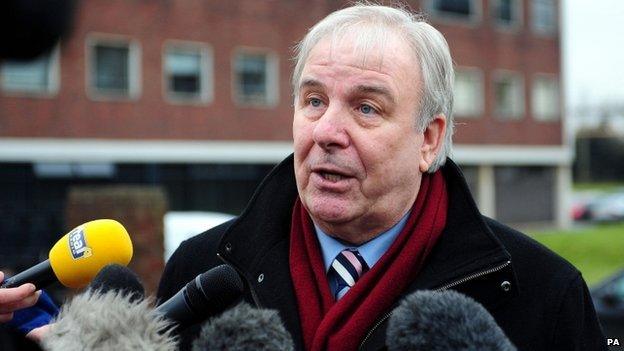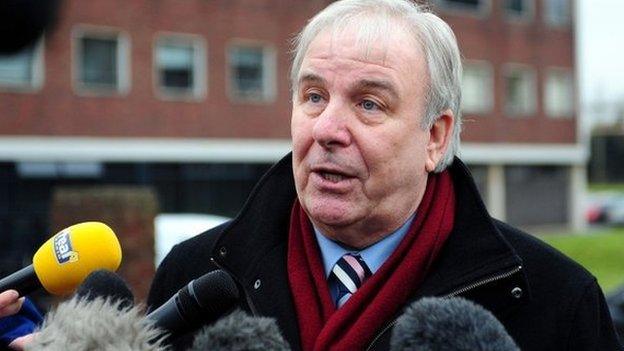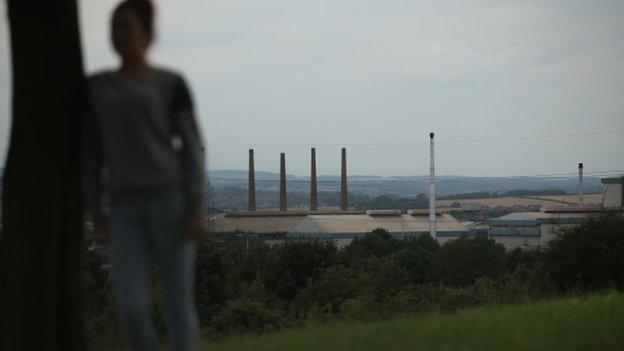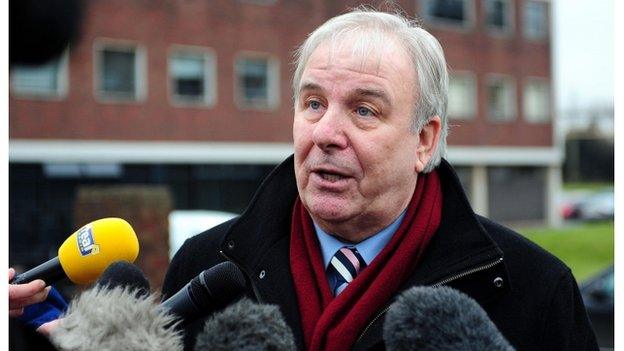Ex-leader Roger Stone criticises Rotherham Council 'witch hunt'
- Published

Roger Stone told the Communities and Local Government Committee the Casey Report felt like a witch hunt
The former leader of Rotherham Council has said a damning report into the failures of the authority felt "like a witch hunt".
In written evidence to a committee which questioned him on Tuesday, Roger Stone described his shock at the "vitriol" in the Casey Report, external.
As many as 1,400 children were raped, trafficked and groomed in Rotherham, most during Mr Stone's time as leader.
He resigned the same day the earlier Jay Report, external was published.
Last month's Casey Report found a Labour-led council "not fit for purpose" and led to Communities Secretary Eric Pickles ordering government-appointed commissioners to take over the running of Rotherham.
'Not serving democracy'
Mr Stone said in his statement to the Communities and Local Government Committee: "It does feel like a witch hunt and not a fair and evidenced assessment of the governance capabilities of Rotherham or a rigorous exposition of the failures on CSE (child sexual exploitation) set in context.
"To impose commissioners on the basis of a short review which was dealing with historic issues is not serving the interests of local democracy."
The former council leader said: "There are accountability issues for central government as health, criminal justice including police and CPS have all been part of the 'collective failure' of Rotherham.
"This is in my view why Rotherham's local leadership is being blamed so vociferously to avoid any collective responsibility.
"It is how local and national systems have come together which is in part responsible.
"It is why there are issues from Southampton to Cumbria and crimes from Derby to Oxford to Reading."
'Vague and unsubstantiated'
Prof Alexis Jay's report provoked nationwide shock when it outlined how at least 1,400 children had been subjected to CSE in Rotherham.
Mr Stone said: "I was stunned by the numbers set out in the Jay report and the detail of the abuse outlined and the vitriol of the Casey review.
"I do feel I should have known and done more but I think it's important to have an honest appraisal of what happened and why it happened and not just make accusations which are mostly vague and unsubstantiated."
He said: "Given the scale of the issue I thought our action proportionate.
"In the entire firestorm I don't believe there was a cover-up. I was told there was not enough evidence for the CPS to proceed.
"I had no evidence to contradict this, nor has any been suggested."
- Published10 March 2015

- Published4 February 2015

- Published27 November 2014
